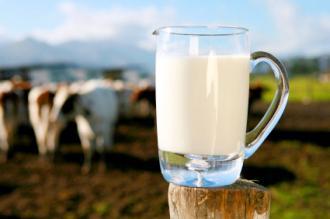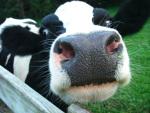
There is a great debate happening within the health industry, and one which has been brewing for quite some time. Yep you guessed it… pasteurised milk vs raw milk. Now, raw milk has its controversy, but the mounting evidence against the hazards of processed milk certainly isn’t without it’s own controversy!
What is Pasteurisation?
Pasteurisation is the term used to describe the rapid heating of milk to 70˚C. The process is designed to destroy bacteria such as listeria, E coli and salmonella. By eliminating most of these pathogens, public health officials have long said that pasteurization has helped to dramatically lower infectious-disease rates in the Western world.
Why the negativity with Pasteurisation?
It has now been shown that as well as destroying any bacteria, pasteurisation destroys beneficial enzymes and bacteria that help to digest the milk. Processed cow’s milk is somewhat foreign and stressful for the body; and after homogenisation, fat-removal, the addition of permeate and synthetic vitamins, and finally bottling… the final product is far from what I would call a “health food”.
Heating also increases free radical formation, and affects the bio-availability of some very important minerals (such as calcium, magnesium, and potassium). To put it simply, it’s pretty darn difficult for anyone to digest processed cow’s milk once it’s been so tampered with.
The black market of raw milk grows…
Got raw milk? Shhhhh… you might be labelled a “rogue raw milk” trader! Laws banning the sale of unpasteurised milk were introduced in Australia in the 1980s. Public health officials (such as FSANZ) warn that raw milk poses a risk of transmitting the aforementioned bacteria.

Raw-milk enthusiasts have a different perspective however. They insist that along with the bad pathogens, heat-treating milk destroys beneficial bacteria, proteins and enzymes that aid in digestion. I have a theory that the rise in cow’s milk intolerance is not solely due to lactose, but also the extraordinary amount of processing that milk undergoes before it reaches your glass.
Raw milk is said to have powerful immune boost properties, and have a host of vitamins, minerals and enzymes which are really beneficial for health. There are even ‘raw milk vending machines’ which are growing in popularity across Europe. Personally, I prefer to call it REAL milk, not RAW milk, and I am grateful for those who are fighting for the biodiversity of our farmers, foods and agriculture.
What are some other alternatives to processed cow’s milk?
Let’s see, we’ve got the full fat organic un-homogenized, un-pasteurized cow’s milk… as well as rice milk, soy milk, oat milk, nut milks (i.e. almond milk), and coconut milk. Personally, I believe a rotation of these milks is best… and if you’re not convinced about raw milk, are concerned, pregnant, or simply don’t have access to it… there’s plenty of other options!
Until next time, Stacey.
References:
Barham-Floreani J 2009, ‘Well Adjusted Babies’ Well Adjusted Pty Ltd, South Melbourne, Victoria.
Keet CA & Wood RA 2007, ‘Food allergy and Anaphylaxis’ Immunol Allergy Clin North Am 27 (2): 193-212
